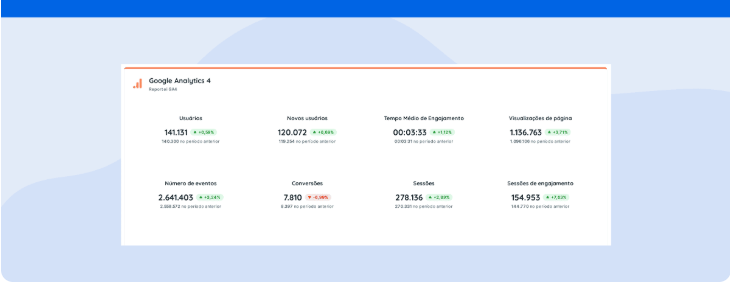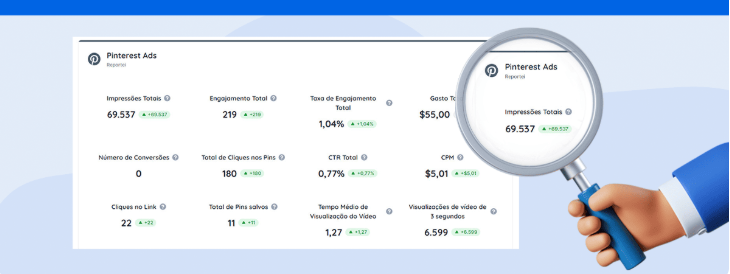Find out how the social search strategy impacts your performance on social media and see practical tips to apply it to your profiles.
When we talk about digital search strategies, it’s common to think about SEO and paid ads on Google. But in recent years, a concept that has been gaining more and more relevance is social search.
This approach combines the best of social networks with search techniques, which helps optimize brand visibility and intensify the relationship with the audience.
Therefore, in this article we will explain what social search is,, why it is important and how you can use it to boost engagement and the results of your business. Stay tuned.
What is social search?
Social search, or ‘pesquisa social’ in Portuguese, is the practice of searching and identifying information on social networks or platforms that gather user-generated content. User Generated Content or UGC.).
Unlike traditional search engines like Google, this form of search relies on information shared, approved, and recommended by people within their networks.
For example, when someone searches for a product on TikTok, Instagram, or even on YouTube, this person can access a series of opinions, comments, and recommendations from real users who share their experiences spontaneously.
These interactions are valuable for those seeking solutions, as often consumer reviews influence purchasing decisions more than a simple description of the product or service.
In other words, this approach has become increasingly present as users prefer to consume content that aligns with their preferences, past experiences, and online community evaluations.
In other words, social search is closely related to how brands present themselves and engage with their audience on social media.
How social search differs from traditional search
In conventional search tools like Google, the ranking is determined by algorithms that consider factors such as keywords, site authority, content quality, and link relevance.
On the other hand, in the context of social search, the focus is on user interactions and engagement. Likes, comments, shares, hashtags, and mentions contribute to certain content having more or less prominence within social networks.
Moreover, this humanized factor in ranking results makes all the difference for brands that want to get closer to consumers.
Benefits of the strategy for businesses
Having said all that, implementing social search as part of a digital marketing strategy can bring several benefits to companies seeking online relevance and authority. Below, we list some of the main ones.
1. Increased visibility and reach
By optimizing your posts and profiles for social search, you increase your chances of being found by potential customers who are searching for products or services similar to what your brand offers on social networks.
This means your posts can appear more easily for those who are genuinely interested in your solution.
2. Strengthening the relationship with the audience
Social search allows you to engage more directly with users who search and discuss topics related to your market niche.
This proximity is essential for building trust and fostering brand loyalty.
3. Creating relevant content
By monitoring social searches, you can identify the main questions, desires, and complaints of the audience regarding your segment.
With this, it is possible to produce content that solves problems and meets user needs, increasing the chances of engagement and sharing.
4. Valuable insights for product development
Discussions on social media often provide spontaneous and genuine feedback from consumers.
Thus, by following these conversations, you can improve or develop new products and services aligned with the real demands of the market.
5. Greater potential for going viral
Finally, relevant content has great chances of being shared and consequently reaching new audiences.
In other words, when you optimize your posts with social search in mind, you also increase the potential for going viral, generating more brand awareness and engagement.
Tips for implementing the strategy in your profiles
Now that you know the benefits of social search, it’s time to learn how to apply the strategy to your social media profiles. Below, check out some practices and recommendations to stand out.
1. Use the correct keywords
Just like in SEO, the choice of keywords is crucial in the context of social search. Therefore, define relevant terms for your brand and include them strategically in your profiles, posts, descriptions, and hashtags.
For example, if your main keyword is social search or pesquisa social, remember to add it to your content and hashtags. However, be careful not to overdo it and fall into spam practices.
2. Maintain consistency in branding and posts
A well-defined visual identity and editorial calendar are essential to attract and keep your audience engaged.
Thus, the more consistent your presence, the higher the probability of your followers remembering your brand and sharing your content.
3. Create interactive content
Polls, quizzes, live videos, tutorials, infographics, and other interactive formats tend to generate more engagement and shares.
Moreover, they provide more data for performance analysis and user feedback.
4. Encourage reviews and testimonials
Positive recommendations and reviews are determining factors for social search. Therefore, encourage satisfied customers to leave comments on your posts or to submit testimonials.
This not only increases your credibility but also helps guide potential customers in their searches.
5. Use different content formats
Each social network has its particularities. Thus, take advantage of the best each one has to offer to produce content in the form of text, video, image carousel, audio, on platforms such as podcasts or chat rooms, and much more.
The more varied the content, the greater the chance of appearing to different types of audiences.
6. Keep up with trends and updates on each platform
Lastly, social networks like Instagram, TikTok, LinkedIn, and YouTube are constantly changing, adding new functionalities, and altering how algorithms work.
Therefore, always stay updated on improvements to take advantage of all available resources and better position your content.
How to monitor the results of Social Search
After implementing social search strategies, it is essential to monitor the performance of your actions to understand what is working and what needs adjustment.
After all, only with consistent data at hand will you be able to continuously improve your content and approaches. Thus, see some recommendations for this process of social media monitoring.
- Set clear goals such as increasing the number of followers on a specific network, brand mentions, or improving the engagement rate. Well-defined goals will help guide your analysis.
- Monitor engagement metrics, keep an eye on data such as impressions, likes, comments, shares, saves, and video views. These interactions indicate that your content is being well-received and boosted by social media algorithms.
- Observe audience growth, as a significant increase in followers may indicate that a certain type of content performed well or that a promotional campaign was effective.
- Analyze mentions and hashtags, stay aware of how the audience is talking about your brand. Analyzing direct mentions like BrandName and the use of your hashtags is a way to understand the general audience perception and possible areas for improvement.
- Evaluate the ROI (Return on Investment), if you are investing in ads or influencer actions to improve social search, measure the financial results obtained, such as increased sales or lead generation, and compare with the costs of these initiatives.
How Reportei can help with the analysis
To facilitate this entire process of monitoring and tracking, analysis and reporting tools are essential. This is where Reportei comes into play, a platform that gathers data from various social networks in one place. With it, you can
- Connect various media channels and view performance indicators in customized reports.
- Monitor engagement metrics, follower growth, interactions per post, and other relevant data.
- Generate reports quickly and share with teams or clients, facilitating decision-making.
- Have a macro view of the strategies for social search and identify trends to optimize your results.
Additionally, Reportei also allows for the creation of reports and dashboards in a simplified manner so that you can better understand what is happening in each profile and thus direct efforts where there is more potential for return.
In this way, you not only save time but also ensure more accurate and consistent analyses, which are essential for scaling your presence on social media.
Take advantage of the free trial period and discover how our platform can help make your social search analyses and strategies more efficient.



